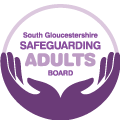Domestic abuse
What is Domestic Abuse?
The behaviour of a person towards another person is ‘Domestic Abuse’ if they are both 16 years or over and are personally connected to one another and the behaviour is abusive.
Behaviour is “abusive” if it consists of any of the following:
- physical or sexual abuse
- violent or threatening behaviour
- controlling or coercive behaviour
- economic abuse
- psychological, emotional or other abuse;
- Under the 2021 Domestic Abuse Act children are now viewed as victims of Domestic Abuse if the Abuse is happening between their parents/carers
What is a Multi-Agency Risk Assessment Conference (MARAC)?
A MARAC is a meeting where information is shared on the highest risk domestic abuse cases between representatives of local police, health, child protection, adult safeguarding, housing practitioners, Independent Domestic Violence Advisors (IDVAs), probation, DHI and other specialists from the statutory and voluntary sectors. After sharing all relevant information they have about a victim, the representatives discuss options for increasing the safety of the victim and turn these into a co-ordinated action plan. The primary focus of the MARAC is to safeguard the adult victim. The MARAC will also make links with other forums to safeguard children and manage the behaviour of the perpetrator. At the heart of a MARAC is the working assumption that no single agency or individual can see the complete picture of the life of a victim, but all may have insights that are crucial to their safety. The victim does not attend the meeting but is represented by an IDVA who speaks on their behalf.
South Gloucestershire’s MARAC takes place on a fortnightly basis and is currently held online via MS Teams.
How are victims’ cases referred to MARAC?
Any frontline agency representative that undertakes a risk assessment with a victim (DASH), and thereby determines that their case meets the high risk threshold, can refer a victim’s case to MARAC. IDVAs, police and health professionals commonly refer high risk victims to MARACs.
In order to refer a victim to MARAC a completed DASH and MARAC Referral Form should be sent to the MARAC inbox – marac@southglos.gov.uk
All involved agencies have a MARAC representative who regularly attend MARAC. Advice can be sought from your MARAC agency representative. If you are unaware of who that is please contact the MARAC inbox – marac@southglos.gov.uk
Referrers are required to attend the MARAC in order to share any updates since the referral was completed and to be part of the action planning process.
Do victims know that their cases are being heard at MARAC?
It is important that the victim is informed of the MARAC. SafeLives recommends that it is good practice to work in partnership with victims where possible, to obtain the most up-to-date information directly from the victim. It’s relatively unusual but in cases where the victim doesn’t want to be referred, practitioners must assess whether it is proportionate and defensible to share information, depending on the level of risk which the victim is facing.
Any queries regarding MARAC should be directed to the MARAC inbox marac@southglos.gov.uk where it will be picked up by the MARAC co-ordinator team.
